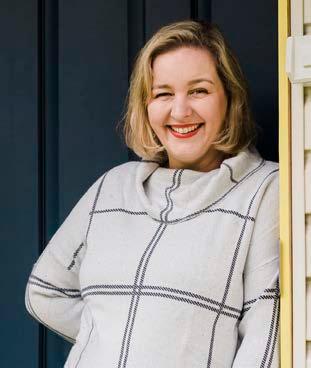
3 minute read
PROTECTING YOUR BUSINESS IN THE EVENT OF A RELATIONSHIP BREAKDOWN OR DIVORCE
By Emma Maxwell –Anchored Family Law

Advertisement
Every profession seems to have its own patterns or trends. As a family lawyer, one of the patterns I’ve observed is that there are several common triggers for relationship and marriage breakdowns. Those triggers could be multiple young children, children leaving home and, quite often, one spouse establishing their own, successful business. This means that I often have matters coming across my desk where the parties are dividing their assets and one party in particular is very concerned about protecting their business in the separation.
Even if you’re not contemplating separation, turning your mind to how you would deal with your business in the event of a divorce or de facto relationship breakdown is a good idea. The first challenge is understanding how the Family Law Act deals with businesses when dividing matrimonial and de facto asset pools, which is through the ‘four step process’. The first of these steps is determining what is in the asset pool. Essentially, all assets, liabilities and financial resources of the parties are pooled together – even assets from prior to the relationship or assets in individual names or held in a trust or other company arrangement. This is called the ‘one asset pool approach’. This means that, yes, even your business is part of the matrimonial asset pool, even if your spouse never worked in or on the business.
The second step is considering what the various contributions of the parties were.
This includes financial contributions (such as your income, or an inheritance), non-financial contributions (such as renovating a house and increasing the value of the asset pool that way) and parenting and homemaker contributions. The third step is assessing the future needs of the parties – and what could make those future needs greater or lesser for one of the parties. This could be factors such as poor health and its impact on your ability to work, care of young children and even family violence.
When I explain steps two and three to clients, I like to describe a set of scales with contributions and future needs tipping the scales back and forth until we have what is a ‘fair’ percentage of the asset pool for each party. And that’s not always a 50/50 arrangement.
The final step is considering whether the property settlement is just and equitable.
So, what does this mean for you as a business owner? Well, firstly, in the event that you separate, your business is effectively ‘up for grabs’ in the settlement. And depending on how those scales balance out for you, may mean that you retain your business rather than another asset such as a house or all of your superannuation. Or it may mean that your business is sold so that the assets of the business can be divided between you. If the thought of this happening is worrying, there are steps you can take prior to separation to protect your business. One of those steps is considering a Binding Financial Agreement which is also known as a BFA or a prenup (even though they can be made at any time, including after marriage).
A BFA is essentially contracting out of having your matter dealt with under the Family Law Act. For this reason, BFAs are highly regulated and a complex area of family law. If you would like to enter into a BFA, or otherwise protect your business after separation, you should seek advice from an experienced family lawyer.
Honed by years of expertise, Emma produces exceptional quality Court documents for her clients, which have been used by the Courts to teach other lawyers.
Anchored Family Law was founded by Emma Maxwell in 2022. A respected solicitor of 15 years, Emma has long observed a number of separating people fall into a gap in the family law system — they don’t qualify for legal aid, yet the services of traditional family law firms are simply beyond their financial reach. By unbundling family law services and delivering them using the power of technology, Anchored Family Law makes quality legal assistance accessible to such individuals. Family law is about people and their stories, and this is truly where Emma shines — telling those stories effectively, clearly and in the best possible light. After becoming a mother — and subsequently finding herself living, working and raising a baby during the COVID-19 lockdowns — Emma decided that she wanted to practise family law differently, and Anchored Family Law was born.
More than anything, she understands that her clients need strength, reliability and support at this time in their lives and takes a trauma-informed approach to her work. She is passionate about helping clients through the family law system and into the next phase of their lives.
Emma currently lives and works on the regional property she shares with her family, and an array of animals including several dogs, horses and a goat.








